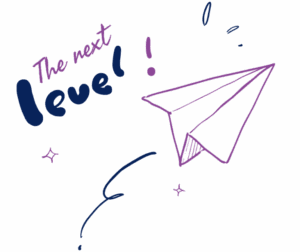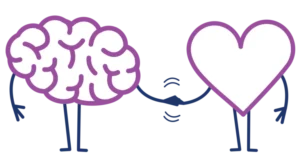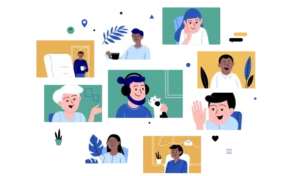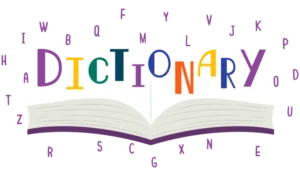by Susanne Meyer
Coronavirus has brought scientist as well as the general public a number of surprises. The most recent one of these concerns the frequency with which people dream, the vividness of these dreams, and the length of time for which people recall them. Several studies have revealed that many people suffer from anxiety dreams in response to the uncertainty and danger inherent in a pandemic. For example, many people are being chased in their dreams by zombies, shadowy figures, or beasts. Others dream about hunting for hard-to-find commodities such as toilet paper. This is not difficult to understand. What is somewhat more surprising is that many people seem to recall their dreams much longer into the day than they usually do. At least one study has attributed this to the fact that our days are currently duller than usual as we are isolated from the places and people we usually see in the course of our daily routines. Our brains consequently feel under-stimulated, and there is more room in our mental lives for the detritus of our dreams — we simply live deeper inside our heads (National Geographic).
Dreams have long fascinated people — a quick Amazon search will confirm this. But dreams are also one of the topics on which blind people get the most questions from their sighted counterparts. Do blind people dream? Can blind people see in their dreams? What can blind people see in their dreams? In this blog post, I am going to explore the relationship between dreams and sight — and I sincerely hope you’ll share your own thoughts on the issue.
Why are sighted people so obsessed with whether and how blind people dream? All of this is speculation, but I would imagine some of this is because sight features so prominently in the dreams of sighted people. We live in a visual world anyway, but it seems that the percentage of visual content in dreams is even higher. I, for example, cannot really remember a dream that featured smells or even sounds — usually, my dreams consist of things that I simply know, somehow, without sensory input, plus things I see in my mind’s eye. If my own experience is to be taken as representative, then the average person’s dreams are by nature highly visual. Some dreams may even be necessarily visual — I read once that one of the most common recurrent dreams people experience is that they can fly. I personally get flying dreams occasionally, and love them — they consist of an areal view of a dreamscape over which I am soaring, and they come complete with a sense of total freedom and agility. They are amazing, and they do make me wonder whether there is an equivalent type of dream that blind people tend to have. So, it may not just be the phenomenon of dreaming in general that makes sighted people wonder what blind people dream, but specific dreams that seem to have no non-visual counterpart.
The answer to the question of whether and how blind people dream is requires, as usual, a frustrating number of qualifiers. Whether blind people dream is easy: everyone dreams. But to what extent these dreams would be recognizable to a sighted person depends on a number of factors. Firstly, most people who consider themselves blind, or who are considered blind by others, have some sight. Blindness comes in an astonishing variety of degrees and varieties, and it is thus unlikely that most “blind” people see nothing at all when they dream — more likely, they have roughly the same amount and type of sight they have in their waking lives. Unless, of course, their sight has recently changed, which happens with many progressive eye diseases. In that case, dreams tend to linger behind a person’s actual sight, and many people report that in their dreams they can still see things that they can no longer see when they are awake. In fact, I have even heard of people who resorted to more or less legal drugs because these drugs stimulated their dormant visual context in the same way in which sensory input used to stimulate it, and with the help of drugs, they can once again things they haven’t seen in a while, such as colors. I don’t mean to imply that this is common — but there is anecdotal evidence that it can happen.
When it comes to totally blind people, the picture is both simpler and more complicated. I’ve heard people who were born without light perception or who have not seen anything in a very long time say that their dreams have no visual content whatsoever — in their dreams, they are as blind as they are in real life. But there are other people who report that their dreams are strange to them, but in a way that they cannot describe. This is very interesting to me — could it be that their brains are actually experiencing some sort of neural activity in the visual cortex because as human brains they were wired to do that? Could it be, in other words, that the brains of long-time blind people generate some sort of quasi-visual content without any incoming stimuli and without having to rely on its (non-existent) memory of those stimuli? If this is the case, could it further be that the long-time blind person simply does not recognize visual imagery as such because, as it were, their brain does not “speak vision”? This may be possible, but personally, I have never heard of a totally blind person who has been totally blind for most of their lives say that they have anything that they recognize as vision in their dreams — but maybe I need new friends.
In all seriousness — as noted at the beginning of this post, most of this is pure speculation. I do not know of any scientific studies that investigate the visual aspects of the dreams of blind people, and in the absence of this evidence, all we can do to understand each other’s dream scapes is to share our own experiences. On that note, please comment to share your dreams, or to tell us about any thoughts this blog post may have triggered. I bet we could have a fascinating conversation on this topic.





